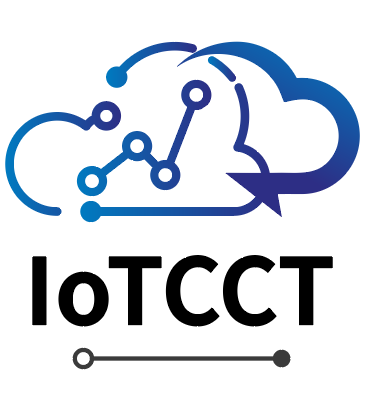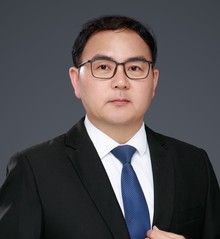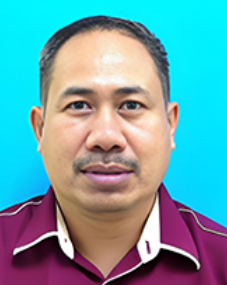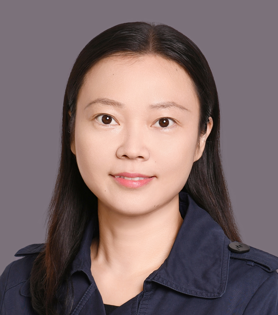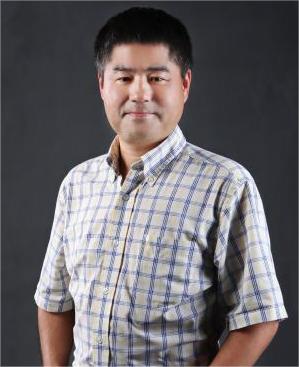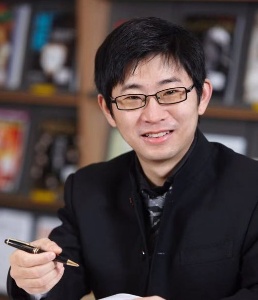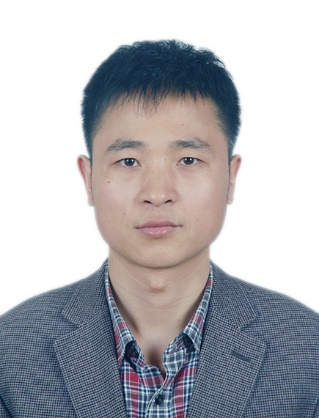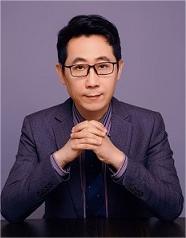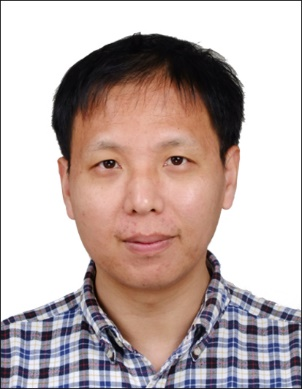Prof. Xiyuan Chen, Southeast University, China (IEEE Senior Member) |
| The recipient of Southeast University’s first Young Faculty Teaching and Research Funding Program (2003), selected in 2006 for the Ministry of Education’s “New Century Talent Support Program” and Jiangsu Province’s “Qinglan Project” training program, became a Jiangsu Province “Six Talent Peaks” training candidate (Category A) in 2008, and was honored with the China Industry-University-Research Cooperation Innovation Award in 2015. He has received honors including Outstanding Communist Party Member of Southeast University, Advanced Individual in the Pioneer and Excellence Competition, and Excellent Supervisor of Southeast University. He currently serves concurrently as the Vice Chairman of the Academic Committee on Ship Instruments and Equipment of the China Society of Naval Architects and Marine Engineers, director of the China Instrument and Control Society, director of the China Society of Naval Architects and Marine Engineers, director of the China Ocean Engineering Consulting Association, vice chairman of the Jiangsu Association for Scientific Instrumentation, secretary general of the 10th Council of the Jiangsu Instrument and Control Society, member of the Jiangsu Graduate Education Steering Committee for Engineering (Category 1), member of the 10th Jiangsu Association for Science and Technology, invited reviewer for over 60 high-level domestic and international SCI/EI journals, communication review expert for various National Natural Science Foundation of China projects including General, Key, and Outstanding Youth programs, communication reviewer for national and Ministry of Education scientific projects and award evaluations, and the “Ten Thousand Talents Plan,” among others. |
Title: Key Technologies for Environmental Perception and Navigation Planning of USVs Abstract: As marine intelligent technology advances, Unmanned Surface Vehicles (USVs) have become a global maritime research focus, with development trends shifting toward higher autonomy and adaptability to complex sea conditions. However, challenges persist—such as low environmental perception accuracy in dynamic scenarios, weak path planning robustness, and difficulties complying with international navigation rules without prior information. This report focuses on the Key Technologies for Environmental Perception and Navigation Planning of USVs, addressing these pain points. We have systematically conducted research on the development trends of USV models in recent years, and in this presentation, we provide a detailed explanation of the development trends in USVs’ perception and navigation technologies. For key issues in these fields, we present our team’s latest technical research routes as well as the demonstration of research results—covering innovations from high-precision obstacle detection to robust path planning, which aim to tackle core challenges in USV autonomous operations and offer practical technical references for their intelligent advancement. |
Prof. Azlan Mohd Zain, Universiti Teknologi Malaysia, Malaysia (H-index: 42) |
| Azlan Mohd Zain (Member, IEEE) received the master’s degree in science (productivity and quality improvement) from Universiti Kebangsaan Malaysia (UKM) and the Ph.D. degree in computer science from Universiti Teknologi Malaysia (UTM), in 2010. He is currently a Professor with the Faculty of Engineering, School of Computing, UTM. He is also the Director of the UTM Big Data Research Centre. As an academic staff, he has successfully supervised more than 25 postgraduate students and received more than 20 research grant funding to support research students. He has published more than 100 research papers. He has been invited as keynote speaker at over five international conferences, serves on numerous committees, and has served on editorial board for three international journals. |
Prof. Celimuge Wu, The University of Electro-Communications, Japan (IEEE Senior Member) |
Celimuge Wu received his PhD degree from The University of Electro-Communications, Japan. He is currently a professor and the director of Meta-Networking Research Center, The University of Electro-Communications. His research interests include Vehicular Networks, Edge Computing, IoT, and AI for Wireless Networking and Computing. He serves as an associate editor of IEEE Transactions on Cognitive Communications and Networking, IEEE Transactions on Network Science and Engineering, and IEEE Transactions on Green Communications and Networking. He is Vice Chair (Asia Pacific) of IEEE Technical Committee on Big Data (TCBD). He is a recipient of 2021 IEEE Communications Society Outstanding Paper Award, 2021 IEEE Internet of Things Journal Best Paper Award, IEEE Computer Society 2020 Best Paper Award and IEEE Computer Society 2019 Best Paper Award Runner-Up. He is an IEEE Vehicular Technology Society Distinguished Lecturer. He is aForeign Fellow of The Engineering Academy of Japan. |
Title: Semantic CommunicationsSystems for Remote Driving
Abstract: The explosive growth of data, the continuous surge in the number of connected devices, and the increasing demand for real-time applications are posing unprecedented challenges to existing network architectures. As an emerging communication paradigm to address this trend, semantic communications have attracted widespread attention in recent years. Taking video transmission in remote driving as an example, this talk introduces an innovative semantic communication system that can more effectively deliver video data. Experimental results based on the prototype system demonstrate that the proposed system achieves significant performance improvements compared with both existing semantic communication methods and traditional non-semantic communication approaches. |
Prof. Yi Xu, Anhui University, China |
Yi Xu is a professor of School of Computer Science and Technology, Anhui University, China. Her research interests include intelligent computing, granular computing and edge computing. She has published over 60 papers in influential international academic journals and at various conferences. She has led many national and provincial research projects, including those funded by the National Natural Science Foundation of China and the Natural Science Foundation of Anhui Province. She serves as a member of CAAI’s Professional Committee on Granular Computing and Knowledge Analysis and a senior member of CCF. |
Title: UAV Intelligent Logistics System Based on Cloud-Edge-Device Collaboration
Abstract: Last-mile delivery is the final stage of logistics that directly interacts with customers, accounting for approximately 30%-50% of the total logistics cost. This stage is characterized by concentrated customer contact points and high sensitivity to timeliness. Urban deliveries often face challenges such as traffic congestion and high labor costs. With the rapid development of Internet of Things (IoT) technology, drone delivery has emerged as an innovative solution to the last-mile problem. This report focuses on addressing the high cost and low efficiency of last-mile delivery by constructing an intelligent drone logistics system based on a cloud-edge-device three-tier collaborative architecture to achieve cost reduction and efficiency improvement in logistics services. It introduces related research work centered on the effective management of computing resources within the cloud-edge-device architecture, accurate identification of target recipients, as well as data security and privacy protection. |
KEYNOTE SPEAKERS
2024 2nd International Conference on Internet of Things and Cloud Computing Technology (IoTCCT 2024)
Prof. Yuhui ShiIEEE FellowSouthern University of Science and Technology, China Dr. Yuhui Shi is a Chair Professor in the Department of Computer Science and Engineering, SouthernUniversity of Science and Technology (SUSTech), Shenzhen, China. Before joining SUSTech, he was with the Department of Electrical and Electronic Engineering at the Xi’an Jiaotong-Liverpool University (XJTLU),Suzhou, China, from January 2008 to August 2016, and was with the Electronic Data Systems Corporation(EDS), Indiana, USA, from October 1998 to December 2007. He is an IEEE Fellow, and the Editor-in-Chief of the International Journal of Swarm Intelligence Research. Dr. Shi co-authored a book on Swarm Intelligence together with Dr. James Kennedy and Dr. Russell C. Eberhart, and another book on ComputationalIntelligence: Concept to Implementation together with Dr. Russell C. Eberhart. |
Prof. Min ChenIEEE Fellow,IET FellowH-index=94South China University Of Technology, China Min Chen is an IEEE Fellow, IET Fellow and AAIA Fellow. He is the founding Chair of IEEE Computer Society Special Technical Communities on Big Data. He was General Co-Chair for IEEE CIT-2012, Tridentcom 2014, Mobimedia 2015, Co-Chair of IEEE ICC 2012-Communications Theory Symposium, and Co-Chair of IEEE ICC 2013-Wireless Networks Symposium and Symposium Chair of IEEE Globecom 2022 eHealth, etc. He has 300+ publications, including IEEE JSAC, IEEE TNNLS, AAAI, Advanced Materials、Science, Nature Communications, etc. His Google Scholar Citations reached 44,000+ with an h-index of 97. His top paper was cited 4,500+ times. He was selected as ESI Highly Cited Researcher from 2018 to 2023. He got IEEE ICC Best Paper Award in 2012, IEEE Communications Society Fred W. Ellersick Prize in 2017, the IEEE Jack Neubauer Memorial Award in 2019, and IEEE ComSoc APB Outstanding Paper Award in 2022. His research focuses on cognitive computing, 5G Networks, wearable computing, big data analytics, robotics, fabric computing, deep learning, emotion detection, and mobile edge computing, etc. |
Prof. Tao LeiVice DeanIEEE/CCF/CSIG Senior Member Shaanxi University of Science and Technology, China Lei Tao is a professor and doctoral supervisor at Shaanxi University of Science and Technology. He is alos the vice dean of the School of Electronic Information and Artificial Intelligence, and Senior Member of IEEE/CCF/CSIG. He is selected from the Shaanxi Provincial High level Talent Program, Shaanxi Provincial Outstanding Youth, Stanford Top 2% Global Scientists List, etc. He is a deputy editor, editorial board member, guest editor, etc. for 7 journals, and serves as conference chairman, technical committee chairman, publicity chairman, reward committee chairman, branch chairman, etc. in more than 30 international conferences. His main research areas are computer vision, machine learning, etc. At present, He has published 4 collections of specialized/authored and conference papers, and have published over 100 papers in international journals and conferences such as IEEE TIP, IEEE TMI, IEEE TFS, IEEE TGRS, and IJCAI. Among them, 9 papers are ESI highly cited papers. His Google Academic Citation has exceeded 4600. He hosted many projects such as the National Natural Science Foundation of China (5 projects), Shaanxi Provincial Outstanding Youth Fund, and Shaanxi Provincial Key Research and Development Program. He won the second prize of Shaanxi Province Science and Technology Award and the first prize of Gansu Province Higher Education Research Excellent Achievement Award as the first complete person. |
Prof. Zhi LiVice DeanCCF Distinguished MemberIEEE/ACM Senior memberGuangxi Normal University, China Prof. Zhi Li is a distinguished member of China Computer Federation (CCF), standing committee member of its Technical Council on Software Engineering (TCSE), and a member of its Technical Council on Systems Software and Formal Methods. He graduated with a BSc degree from Fudan University in 1991, an MScdegree from the University of York in 2004, and a PhD degree from The Open University in 2008. Prof. Li had spent over 10 years doing professional and technical work before he entered academia in 2001, withsubsequent 9 years in the UK. His research interests are modeling, verifying, testing and validating Cyber-Physical Systems (CPSs) or Internet of Things (IoT) systems based on Problem Frames, andHuman-Computer Interaction. His research has been sponsored by 2 grants from the National NaturalScience Foundation of China, and 4 grants from Ministry of Education of China, Guangxi Natural ScienceFoundation, and Guangxi Scientific Research & Technological Development. He has published over 50research papers (including 3 CCF-A papers and 3 best papers). He has given over 10 invited talks atacademic conferences. |
Prof. Xiangjie KongIEEE Senior MemberZhejiang University of Technology, China Dr. Xiangjie Kong is currently a Full Professor in the College of Computer Science & Technology, Zhejiang. University of Technology (ZJUT), China. Previously, he was an Associate Professor in School of Software,Dalian University of Technology (DUT), China, where he was the Head of the Department of CyberEngineering. He is the Founding Director of City Science of Social Computing Lab (The CSSC Lab)(http://www.cssclab.cn). He is/was on the Editorial Boards of 6 International journals. He has served as the General Co-Chair, Workshop Chair, Publicity Chair or Program Committee Member of over 30 conferences.Dr. Kong has authored/co-authored over 140 scientific papers in international journals and conferencesincluding IEEE TKDE, ACM TKDD, IEEE TNSE, IEEE TII, IEEE TITS, IEEE NETW, IEEE COMMUN MAG, IEEE TVT, IEEE IOJ, IEEE TSMC, IEEE TETC, IEEE TASE, IEEE TCSS, WWWJ, etc.. 5 of his papers is selected asESI- Hot Paper (Top 1‰), and 16 papers are ESI-Highly Cited Papers (Top 1%). His research has beenreported by Nature Index and other medias. He has been invited as Reviewers for numerous prestigiousjournals including IEEE TKDE, IEEE TMC, IEEE TNNLS, IEEE TNSE, IEEE TII, IEEE IOTJ, IEEE COMMUN MAG, IEEE NETW, IEEE TITS, TCJ, JASIST, etc.. Dr. Kong has authored/co-authored three books (in Chinese).Hehas contributed to the development of 14 copyrighted software systems and 20 filed patents. He has anh-index of 39 and i10-index of 97, and a total of more than 5200 citations to his work according to GoogleScholar. He is named in the 2019 and 2020 world’s top 2% of Scientists List published by Stanford University. r. Kong received IEEE Vehicular Technology Society 2020 Best Land Transportation Paper Award, and TheNatural Science Fund of Zhejiang Province for Distinguished Young Scholars. He has been invited as Keynote Speaker at 2 international conferences, and delivered a number of Invited Talks at international conferences and many universities worldwide. His research interests include big data, network science, and computational social science. He is a Distinguished Member of CCF, a Senior Member of IEEE, a Full Member of Sigma Xi, and a Member of ACM. |
| Invited Speaker |
Prof. Yuanguang MengPLA general hospital, China Prof. Meng is employed at the General Hospital of the People's Liberation Army of China. He is currently the Director of the Department of Obstetrics and Gynecology, Chief Physician, Professor, and Doctoral Supervisor. He also serves as a Master's and Doctoral Supervisor at Nankai University. Enjoy government special allowances. Current health expert of the Central Health Commission and expert of the Central Military Commission's health expert group. Served as the chairman of the Gynecological Intelligence (AI) Medical Professional Committee of the China Maternal and Child Health Care Association, the chairman of the Gynecological Tumor Expert Committee of the National Telemedicine and Internet Medical Center, and the vice chairman of the Gynecological and Obstetrician Branch of the Chinese Medical Doctor Association Academic positions include the appointed chairman of the Gynecological Oncology Credit Committee of the Chinese Medical Association, and others. Proficient in minimally invasive surgical treatment of gynecological benign and malignant tumors, diagnosis and treatment of endometriosis, and comprehensive treatment of gynecological malignant tumors. Mainly using robots, laparoscopy, and a combination of multiple transvaginal surgical approaches for gynecological malignant tumors. We have carried out the world's first robot assisted ultra remote 5G total hysterectomy with double attachments, and have completed remote surgeries thousands of kilometers away for places such as the People's Hospital of Pishan County, Hainan Hospital, and Zhongnan Hospital of Wuhan University. Currently, we have completed a total of seven robot assisted ultra remote 5G surgeries. Leading the development of 5G+smart healthcare. |
KEYNOTE SPEAKERS
2023 International Conference on Internet of Things and Cloud Computing Technology (IoTCCT 2023)
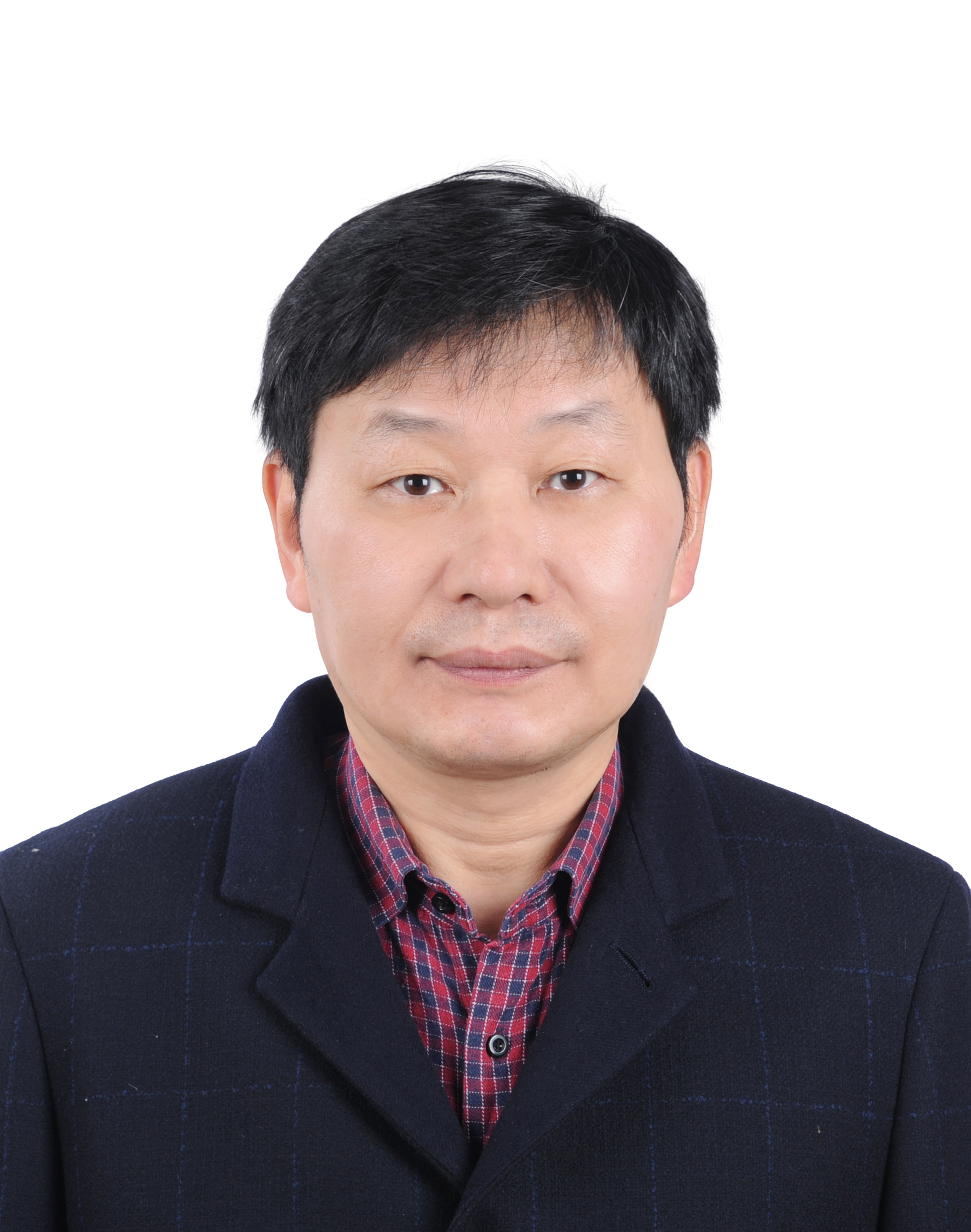
Prof. Wanyang Dai, Nanjing University, China
Biography
Wanyang Dai is a Distinguished Professor in Nanjing University, Chief Scientist in Su Xia Control Technology. He is the current President & CEO of U.S. based (Blockchain & Quantum-Computing) SIR Forum, President of Jiangsu Probability & Statistical Society, Chairman of Jiangsu BigData-Blockchain and Smart Information Special Committee. He received his Ph.D. in mathematics and systems & industrial engineering from Georgia Institute of Technology in USA. He was an MTS and principal investigator in U.S. based AT&T Bell Labs (currently Nokia Bell Labs) with some project won “Technology Transfer” now called cloud system. He was the Chief Scientist in DepthsData Digital Economic Research Institute. He published numerous influential papers in big name journals including Quantum Information Processing, Operations Research, Operational Research, Queueing Systems, Computers & Mathematics with Applications, Communications in Mathematical Sciences, and Journal of Computational and Applied Mathematics. He received various academic awards and has presented over 50 keynote/plenary speeches in IEEE/ACM, big data and cloud computing, quantum computing and communication technology, computational and applied mathematics, biomedical engineering, mathematics & statistics, and other international conferences. He has been serving as IEEE/ACM conference chairs, editors-in-chief and editorial board members for various international journals ranging from artificial intelligence, machine learning, data science, wireless communication, pure mathematics & statistics to their applications.
Title
Quantum-cloud computing based policy computing for IoT via FL & big model
Abstract
Based on quantum-cloud computing, we establish a big model system for IoT to conduct policy computing via blockchained federated learning (FL), which appears or will appear in 5G or 6G supported IoV, etc. The design and analysis of an optimal policy computing algorithm for smart contracts within the blockchain will be the focus. Inside the system, each order associated with a demand may simultaneously require multiple service items from different suppliers and the corresponding arrival rate may depend on blockchain history data represented by a long-range dependent stochastic process. The optimality of the computed dynamic policy on maximizing the expected infinite-horizon discounted profit is proved concerning both demand and supply rate controls with dynamic pricing and sequential packaging scheduling in an integrated fashion. Our policy is a pathwise oriented one and can be easily implemented online. The effectiveness of our optimal policy is supported by simulation comparisons.
Prof. Yong Wang, Guilin University of Electronic Technology, China
Title
Next-Generation Software-Defined Storage Systems: Performance Optimization, Reliability Assurance, and Large-Scale Deployment
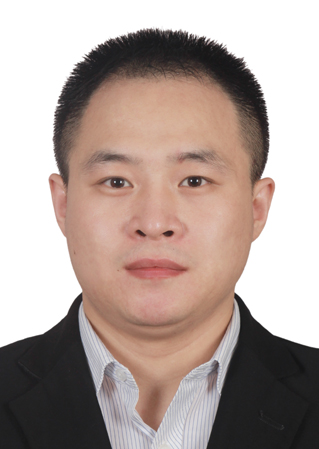
Prof. Bao Feng, Guilin University of Aerospace Technology, China (IEEE Senior Member)
Biography
Feng Bao, Professor of Guilin Institute of Aerospace Technology, IEEE Senior member, PhD from South China University of Technology, Master Supervisor of Guilin University of Electronic Technology, Member of Medical Robotics and Artificial Intelligence Branch of Guangdong Institute of Biomedical Engineering. His research interests include brain-like computing, hybrid intelligent algorithms and intelligent rehabilitation apparatus. He has published more than 30 articles in renowned journals at domestic and foreign level (Cancers, European Radiology, Cancer Imaging, Acta Automatica Sinica, Chinese Journal of Scientific Instrument, etc.), granted 3 National invention patent, led 1project of the National Natural Science Foundation of China, and host 2 provincial or ministerial science foundation projects.
Title
Overview of Radiomics Techniques Based on Transfer Learning
Abstract
Radiomics is a technique that utilizes AI technology to transform medical images into exploitable data, extracting quantitative tumor image features to facilitate clinical decision-making. Currently, radiomics data is characterized by small sample sizes, and applying deep learning methods may lead to issues such as overfitting. To address these challenges, we have conducted research in the field of transfer learning, specifically in the areas of natural images, pathological images, and probabilistic distribution adaptation for multi-source transfer. By transferring knowledge from various source domains to the target domain tasks, we aim to enhance the diagnostic performance of radiomics models on small sample data. Additionally, to tackle the problem of data silos, we have explored federated learning, a strategy where multiple institutions collaborate by sharing only model parameters rather than data, to train a global model and improve its diagnostic performance. Furthermore, to enhance the interpretability of deep learning methods in the field of medical imaging, we have employed various visualization techniques, combining medical expertise with image analysis to provide clinical explanations for discriminative regions, uncover clinically meaningful radiomics features, and improve the accuracy of computer-aided diagnosis.
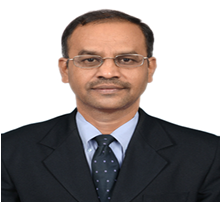
Prof. Nagaraja G.S, R V College of Engineering, India (IEEE Senior Member)
Biography
His research interests include computer networks, networks management, wireless networks, cloud computing, Internet of things, computer architecture, storage optimization and multimedia communications. Supervised 08 PhD Students in the domain of computer networks and allied research areas. Presently supervising 06 Research scholars. He has published more than 150 research articles in referred International Journal / Conferences. Completed a major research project sanctioned by the University Grant Commission titled a. "Effective Multimedia Information retrieval using Indexing Technique" b. “Solar Ironing Cart “sanctioned by the National Institute of advanced studies IIsc, collaboratively with EEE Department for the academic year-2020. c. Collaborative development project on Silkworm Seed production sanctioned by Central Silk Board-2021. He has been involved in a number of conferences, workshops in various capacities such as General chair, Technical chair, Co-chair and technical programme committee / organizing member. ISTE presented a National Award "Rajarambapu Patil" for promising engineering teacher for the creative work done in technical education. Cisco presented an advanced level instructor excellence recognition (2013, 2015) for his contributions RVCE-CISCO networking academy.
Title
IOT based Sensors and Protocols in SMART CITY APPLICATIONS
Abstract
Sensor technology has benefited people's daily lives in practically every domain where they have been used. Sensors are tiny low computing devices which sense and gather signals from the source and then develop the solution correspondingly. There are a variety of sources that can be employed, comprising light, temperature, motion and pressure among others. Intelligent sensor techniques are used in a broad array of uses in lifestyle, medical, fitness, production, and everyday life. Sensors are an important component of IoT (Internet of Things) growth as these are not the typical kinds that translate physical parameters into electronic signals. To serve a technically and commercially feasible role in the IoT context the sensor devices have to expand into something highly robust. The smart city applications make use of different sensors and protocols to provide different services.
Invited Speaker
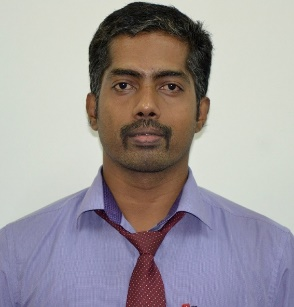
Prof. KANNIMUTHU SUBRAMANIYAM, Anna University, India (IEEE Senior Member)
Biography
Kannimuthu Subramaniyam is currently working as Professor in the Department of Computer Science and Engineering at Karpagam College of Engineering, Coimbatore, Tamil Nadu, India. He is a Head of Center of Excellence in Algorithms. He is an IBM Certified Cybersecurity Analyst. He did PhD in Computer Science and Engineering at Anna University, Chennai. He did his M.E (CSE) and B.Tech (IT) at Anna University, Chennai. He has more than 16 years of teaching and industrial experience. He is the recognized supervisor of Anna University, Chennai. Three PhD candidates are completed their research under his guidance. He is now guiding 7 PhD Research Scholars. He has published 60 research articles in various International Journals. He published 2 books ("Artificial Intelligence" & “LinkedList Demystified-A Placement Perspective” and 3 Book Chapters (WOS / Scopus Indexed). He is acting as mentor / consultant for DeepLearning.AI, Hubino, MaxByte Technologies and Dhanvi Info Tech, Coimbatore. He is the expert member for AICTE Student learning Assessment Project (ASLAP). He has presented a number of papers in various National and International conferences. He has visited more than 100 Engineering colleges / Universities and delivered more than 150 Guest Lectures on various topics. He is the reviewer for 50 Journals and 3 Books. He has successfully completed the consultancy project through Industry-Institute Interaction for ZF Wind Power Antwerpen Ltd., Belgium. He has received funds from CSIR, DRDO and ISRO to conduct workshops and seminars. He has completed more than 610 Certifications (41 Specializations and 4 Professional Certifications) in Coursera, Hackerrank and NPTEL on various domains. He has guided a number of research-oriented as well as application-oriented projects organized by well-known companies like IBM. He is actively involving in setting up lab for Cloud Computing, Big Data Analytics, Open-Source Software, Internet Technologies etc., His research interests include Artificial Intelligence, Data Structures and Algorithms, Machine Learning, Big Data Analytics, Virtual Reality & Blockchain. One of his research works is incorporated SPMF Open-Source Data Mining Tool. Source: http://www.philippe-fournier-viger.com/spmf/index.php?link=algorithms.php. He Conferred Second Best Team in NLP Challenge as part of FIRE 2019 conference. He secured first Position in NLP Challenge as part of FIRE 2018 Conference.
Title
DISTRIBUTED DEEP LEARNING: CHALLENGES AND OPPORTUNITIES
Abstract
The software organizations have been anticipating a new trend of distributed software development in recent years. When processing units or entities are dispersed throughout computer networks and connected, distributed software systems are crucial. The development of computer hardware systems has significantly increased the efficiency of computer systems. A subtype of machine learning called distributed deep learning includes simultaneously training deep neural networks on a number of different devices. Distributed deep learning is a type of machine learning in which deep neural networks are taught concurrently across several machines. Deep classical learning can be difficult and computationally taxing to implement on a single machine. By spreading out the work among numerous computers, training times can be significantly reduced, allowing for rapid model creation and experimentation. The popularity of distributed deep learning has increased recently as a result of the growth of big data and the need to quickly analyze enormous volumes of data.Deep learning approaches are desperately needed to deal with the issue of managing vast resources in distributed systems. Machine learning (ML) offers a method for resolving crucial issues with distributed computing. Deep learning applies a number of processing components or agents to each distributed system resource. The fundamental method for deep learning is data parallelism. The main concerns when implementing machine learning and deep learning techniques are data security and privacy. Cloud platforms like Amazon Web Services, Microsoft Azure, and Google Cloud Platform offer distributed deep learning services, allowing academics and data scientists to use distributed computing for their deep learning workloads. In this keynote talk, an overview about the opportunities HPC can provide to enhance Deep Learning research will be given. In particular, distribution strategies for the training of Deep Neural Networks and challenges one faces when trying to implement them is discussed. Finally, an outline of how we tackle these challenges within our distributed Deep Learning framework will be discussed.
